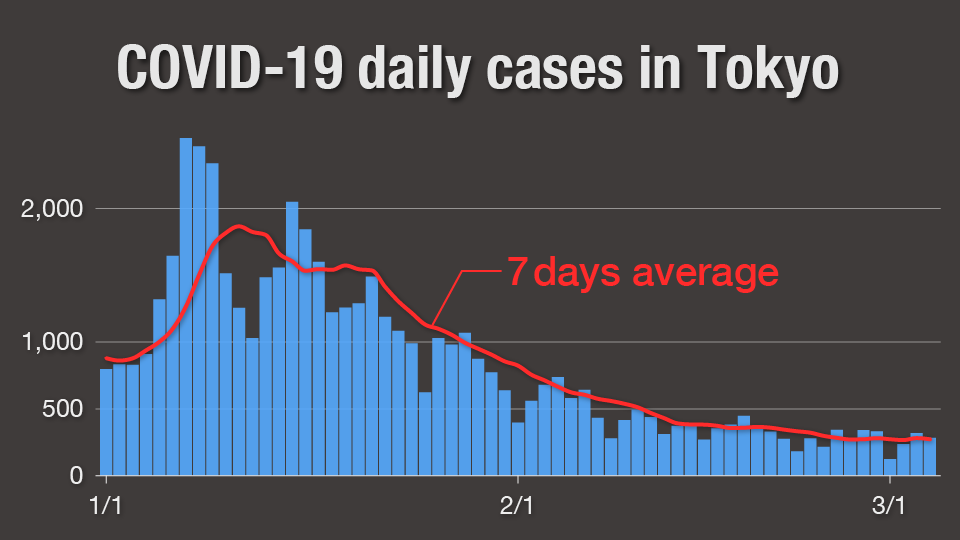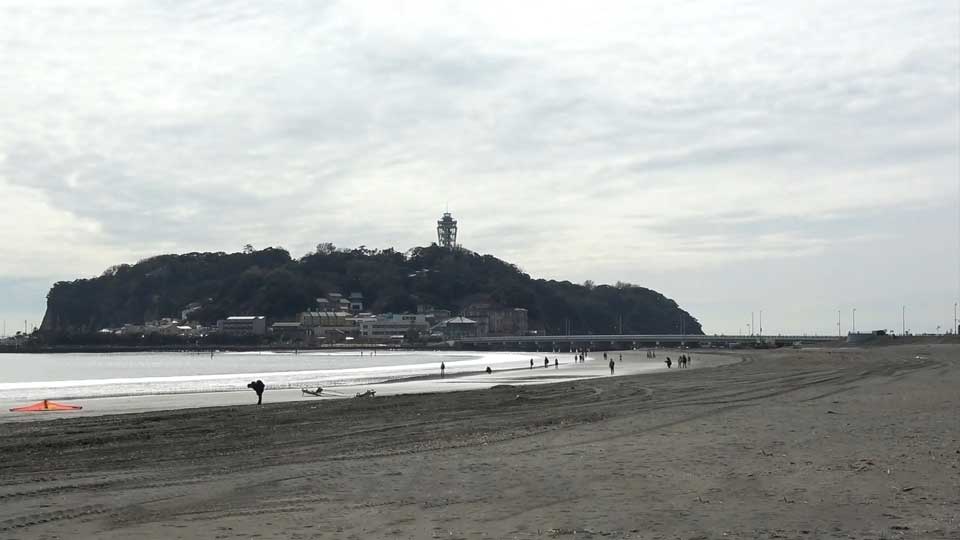Suga told a Diet committee session on Thursday that the region's coronavirus status has improved almost enough to lift the declaration. But "there are still strict indicators, such as the tight situation with hospital beds," he said. "I think an extension of about two weeks may be necessary to protect people's lives and livelihoods."
Tokyo Metropolitan Government officials confirmed 279 new cases of the coronavirus in the capital on Thursday. For two days in a row, the seven-day rolling average was only slightly less than the number from the previous week. Overall, the number of new cases is declining, but at a slowing rate.

The chair of a government coronavirus advisory panel, Dr Wakita Takaji, who also heads the National Institute of Infectious Diseases, warns that the measures so far might not be enough. "It is necessary to find sources of infection that are difficult to see and it's important to thoroughly investigate where infections are occurring and take strong measures," he told a press conference on Wednesday.
Businesses struggle to stay afloat
The state of emergency is having a crushing impact on economic activity. Credit research firm Teikoku Databank reports that 1,100 companies in Japan have gone bankrupt since February last year due to the coronavirus pandemic. Bars and restaurants topped the list with 172 failing, followed by construction firms at 92 and hotels and inns at 79.
The firm notes an increase in bankruptcies among bars and restaurants in urban areas where the state of emergency has been enacted. It expects the extension of the declaration to cause a further decline in personal spending – and possibly more bankruptcies.

Monitoring new strains
Japan's expert coronavirus panel has noted that the number of mutated virus cases has been increasing during the current state of emergency, and is urging the government to bolster its testing system.
In Kobe, infections caused by a variant first detected in Britain are on the rise. Local officials have conducted a survey to track its spread.
Samples were taken from more than 1,000 people who tested positive for coronavirus from January 1 through February 18. Of the 677 cases confirmed from January 1 through January 28, none involved the variant from the UK.
It was a different story after that. Out of 173 cases confirmed in the week starting January 29, eight people, or 4.6 percent, were infected with the variant. The ratio grew to 10.5 percent, or 11 out of 105 cases, in the week of February 5. It climbed further to 15.2 percent, or 12 out of the 79 cases confirmed from February 12 through 18.
Another variant of unknown origin was found in the samples of five patients. Studies have found that the UK strain spreads more rapidly, and the efficacy of current vaccines on new variants remains unclear.
Calls by the government's expert coronavirus panel to increase testing are supported by doctors worried about the new strains. "There needs to be more testing in more parts of Japan to monitor the coronavirus variants," says Hamada Atsuo, Professor of Tokyo Medical University Hospital. "There's a possibility they will spread in a big way."

